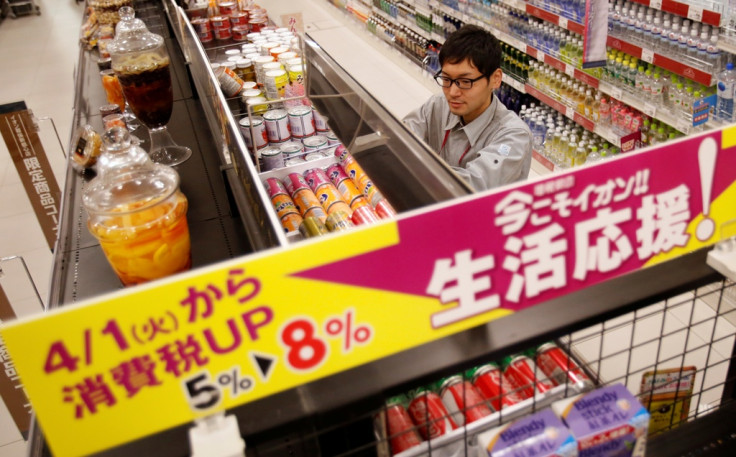Japan: Retail Sales Rocket to 17-Year High Ahead of Sales Tax Hike

Japanese retail sales rocketed in March by their fastest pace in 17 years, as consumers embarked on a buying spree ahead of a sales tax hike that took effect on 1 April.
The 11% increase in retail sales marked the fastest gain since the last time the government raised the tax in 1997, as consumers rushed to purchase durable goods, toiletries and clothes to escape paying higher prices.
The data indicates that consumer spending could drop in the weeks that follow the sales tax increase.
The Bank of Japan has repeatedly said any negative impact from the sales tax hike will be short-lived.
Economists said sales could rebound in May, suggesting the recovery in the world's third-largest economy is unlikely to be derailed.
Commerzbank Corporates & Markets said in a note to clients: It does not come as a surprise that Japanese retail sales reached record levels in March. On a seasonally adjusted basis retail sales rose by 6.3% MoM. These are clearly advance purchases ahead of the VAT hike on 1 April. As a result a notable decrease in retail sales is expected for April. However, there is still hope that the Bank of Japan's scenario will materialise and that sales will recover as early as May.
"The risk remains that in view of inreasing prices consumer sentiment will change, in particular if notably higher summer bonus payments do not materialise. These are due in June - they would have to lead to a notable rise in income as it will otherwise become difficult to maintain the mood to buy amongst the Japanese."
Government Coffers
Tokyo raised the national sales tax on 1 April 2014, to 8% from 5%, a move designed to boost tax revenue from a shrinking labour force amid rising costs associated with financing the nation's aging society.
Consumers bought automobiles and homes ahead of the increase.
Prime Minister Shinzo Abe's government is trying different things to strengthen the economy and the government's coffers. The sales tax hike apart, lawmakers are trying to get more women to join the workforce, while they contemplate easing restrictions on immigration.
The last time Tokyo raised the sales tax, in April 1997, retail sales shot up an annual 12.4% in March and dropped to an annual 3.8% in April.
Many politicians blamed the hike for the recession that followed, but others believe the Asian financial crisis was a bigger reason behind Japan's economic contraction.
© Copyright IBTimes 2025. All rights reserved.






















